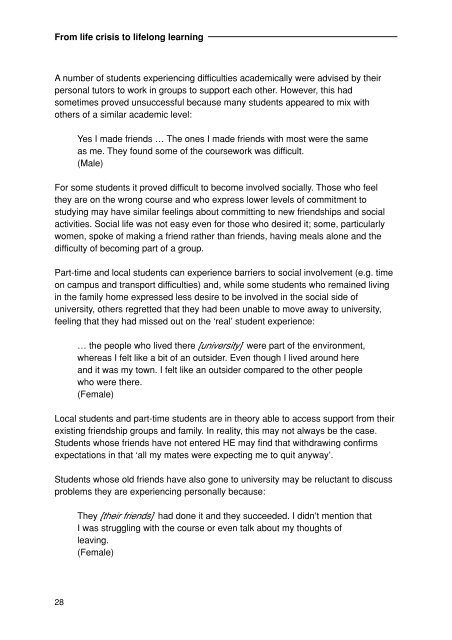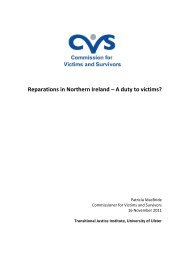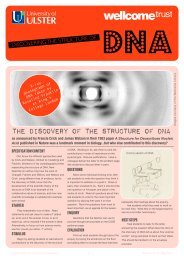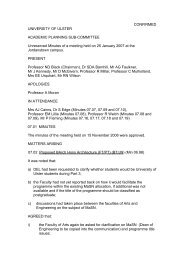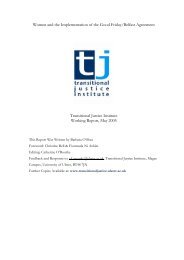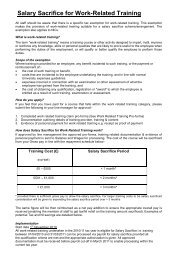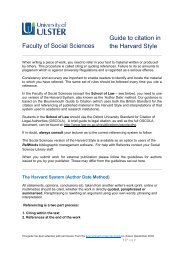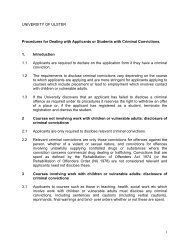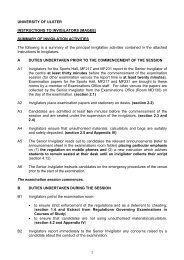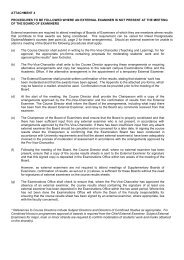From life crisis to lifelong learning: Rethinking working-class 'drop out'
From life crisis to lifelong learning: Rethinking working-class 'drop out'
From life crisis to lifelong learning: Rethinking working-class 'drop out'
You also want an ePaper? Increase the reach of your titles
YUMPU automatically turns print PDFs into web optimized ePapers that Google loves.
<strong>From</strong> <strong>life</strong> <strong>crisis</strong> <strong>to</strong> <strong>life</strong>long <strong>learning</strong><br />
A number of students experiencing difficulties academically were advised by their<br />
personal tu<strong>to</strong>rs <strong>to</strong> work in groups <strong>to</strong> support each other. However, this had<br />
sometimes proved unsuccessful because many students appeared <strong>to</strong> mix with<br />
others of a similar academic level:<br />
28<br />
Yes I made friends … The ones I made friends with most were the same<br />
as me. They found some of the coursework was difficult.<br />
(Male)<br />
For some students it proved difficult <strong>to</strong> become involved socially. Those who feel<br />
they are on the wrong course and who express lower levels of commitment <strong>to</strong><br />
studying may have similar feelings about committing <strong>to</strong> new friendships and social<br />
activities. Social <strong>life</strong> was not easy even for those who desired it; some, particularly<br />
women, spoke of making a friend rather than friends, having meals alone and the<br />
difficulty of becoming part of a group.<br />
Part-time and local students can experience barriers <strong>to</strong> social involvement (e.g. time<br />
on campus and transport difficulties) and, while some students who remained living<br />
in the family home expressed less desire <strong>to</strong> be involved in the social side of<br />
university, others regretted that they had been unable <strong>to</strong> move away <strong>to</strong> university,<br />
feeling that they had missed out on the ‘real’ student experience:<br />
… the people who lived there [university] were part of the environment,<br />
whereas I felt like a bit of an outsider. Even though I lived around here<br />
and it was my <strong>to</strong>wn. I felt like an outsider compared <strong>to</strong> the other people<br />
who were there.<br />
(Female)<br />
Local students and part-time students are in theory able <strong>to</strong> access support from their<br />
existing friendship groups and family. In reality, this may not always be the case.<br />
Students whose friends have not entered HE may find that withdrawing confirms<br />
expectations in that ‘all my mates were expecting me <strong>to</strong> quit anyway’.<br />
Students whose old friends have also gone <strong>to</strong> university may be reluctant <strong>to</strong> discuss<br />
problems they are experiencing personally because:<br />
They [their friends] had done it and they succeeded. I didn’t mention that<br />
I was struggling with the course or even talk about my thoughts of<br />
leaving.<br />
(Female)


